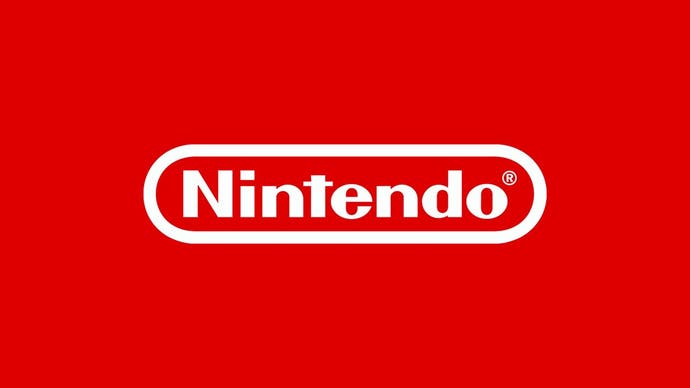DF Weekly: Should we expect more than last-gen console performance on Switch 2?
Modern architecture, DLSS and solid-state storage could make all the difference.
It's Monday, meaning it's time for us to publicly deploy the latest edition of DF Direct Weekly - and one of the topics covered this week concerns evidence from Activision's Bobby Kotick to the FTC during the Microsoft trial, more specifically the idea that he was briefed on the technology last year and believes that the hardware 'has closer alignment' with the last-gen consoles. This raises an interesting question: how can this be the case in a world where strongly sourced rumours suggests that Epic Games has its The Matrix Awakens demo running on target Switch 2 hardware?
The concept of 'target hardware' has always raised some concerns when it comes to accurately representing what an actual retail console can deliver, but everything I'm hearing about the machine does sound quite promising. For now, let's focus instead on the concept of closer alignment to the last-gen systems. The issue here is that an assessment of basic horsepower factors out so much of what makes a particular piece of gaming hardware unique.
The original Switch makes a pretty good case, but the Steam Deck is an even more obvious example. Where we've been able to benchmark the system in like-for-like terms against PlayStation 4 (for example, using God of War's PS4-a-like 'original' settings) I found that the Deck delivers at 800p what the Sony console offers up at 1080p. However, in other titles, we've seen closer parity between Deck and PS4. Contrary to this narrative though, it's also possible to run PS5 exclusive Ratchet and Clank rather well on the Valve handheld. There's a strong argument that it's not the level of horsepower that's important, but rather how well it is deployed.
- 0:00:00 Introduction
- 0:00:55 News 01: Cyberpunk 2077: Phantom Liberty reaction!
- 0:11:36 News 02: We need to talk about GPU reviews
- 0:34:00 News 03: Mortal Kombat 1 on Switch has performance, visual issues
- 0:46:13 News 04: Switch 2 reportedly close to PS4, Xbox One power
- 0:51:01 News 05: The Matrix Awakens goes offline… then returns!
- 0:56:32 Supporter Q1: How do you think Nintendo and Sony will react to the Microsoft next-gen console proposal leak?
- 1:01:34 Supporter Q2: For hybrid cloud gaming, what features should be on the cloud and which should remain on local hardware?
- 1:09:54 Supporter Q3: What can be done to convince gamers of the importance of the CPU for game performance?
- 1:15:10 Supporter Q4: Are frame-rate limiters the responsibility of the game developers, or hardware manufacturers?
- 1:20:54 Supporter Q5: Couldn’t games self-adjust to hit a target frame-rate on PC?
Brute force compute is just one part of the mobile equation and Steam Deck benefits simply by virtue of a more modern architecture for both CPU and GPU, while storage capabilities are radically transformed in the move from a mechanical hard drive to SSD. Where the new Switch fits in is difficult to nail down, but we should expect more CPU performance from it than the PS4 could muster, while I suspect Nintendo would likely opt for eMMC storage internally as opposed to a small form-factor M.2 SSD (not quite as good as an SSD, but far better than an HDD). Even so, where Steam Deck benefits in terms of improved CPU and storage performance, I'd expect the same from the next Nintendo console.
However, it's the GPU that could prove more exciting. In terms of basic grunt, likening it to the last-gen consoles is probably on point. However, there is much more to the graphics core than the limited functionality of technology designed well over a decade ago. Its application may be limited, but the mooted T239 chip heavily rumoured for the next Switch features hardware-accelerated ray tracing features and if The Matrix Awakens demo is using them, that's quite remarkable. The entire DX12 Ultimate feature set will be in there, meaning mesh shaders, VRS and even sampler feedback will be available. Outside of the GPU, T239 also has a hardware decompression block for faster loading too.
It's DLSS that could be the real gamechanger, however. Recently I've acquired a laptop with an RTX 2050, which despite its name uses the same Ampere GPU architecture as the T239, but has a complement of 2048 CUDA cores up against the 1536 suggested for the new Switch. Even so, even with clock speeds on the RTX 2050 massively throttled back to match OG Switch, DLSS is profoundly useful. I'll be sharing more of my testing soon, but in a living room environment, DLSS at 1080p and 1440p in quality and performance presets still passes muster. Both of those are upscaling from an internal 720p. Even running at low clocks, Death Stranding at 1080p using DLSS quality mode ran 28 percent faster than the same content rendering at native 1080p.
What really excites me about a new Switch isn't just the hardware though. It's the continuity of the spirit of innovation and optimisation that saw the existing Nintendo hybrid deliver games we'd never have thought possible when the hardware was announced. When the Digital Foundry staff first saw Switch hands-on, we got what we expected to see - essentially a handheld form of performance more in line with the Wii U or Xbox 360. However, as the generation progressed, we saw so many remarkable ports via the developers like Rebellion North, Saber Interactive and Panic Button. They got to know the hardware, they exploited its strengths and worked around its weaknesses.
Have a read about Zombie Army 4 or watch our interview with id Software and Panic Button on Doom Eternal. Now imagine that same level of application and enterprise applied to a brand new Nintendo hybrid. It's mouthwatering stuff - and that's before we've even started to consider what Nintendo itself will be delivering on its new machine.


